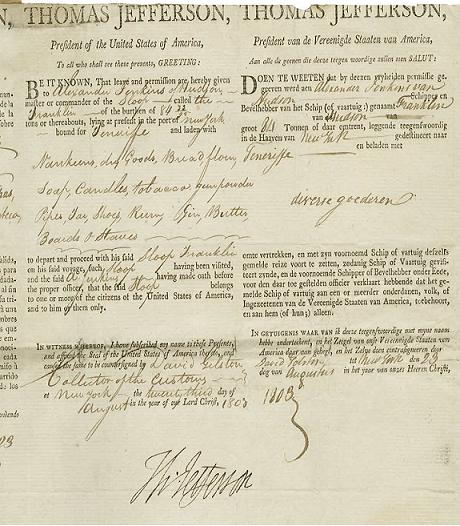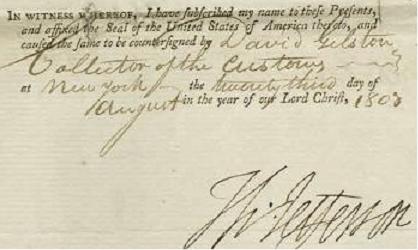Since publication in 2007, I have referred many people to the book, unChristian by David Kinnaman and Gabe Lyons. In their book, Kinnaman and Lyons report that the church is known more for what it is against than what it is for. They also document the extreme anti-gay sentiment which dominates evangelicalism. Among young people outside the church, nine out of ten viewed Christians as anti-gay.
Part of my retreat from the culture war relates to the realization that evangelicals have earned this perception. Evangelicals have not stopped with disagreement, but actively opposed equal treatment of gays. And they have not stopped with political opposition. Evangelical thought leaders blame gays for every societal evil and do so with a venom that is often shocking. When I read unChristian, it seemed that the research reported there validated my worries that Christians were largely on the wrong track.
Until recently, I had referred people to the book without knowing much about the organization which produced it. UnChristian author Gabe Lyons runs a group called Q. On the Qideas website, Lyons describes Q as:
Q Ideas
Q was birthed out of Gabe Lyons’ vision to see Christians, especially leaders, recover a vision for their historic responsibility to renew and restore cultures. Inspired by Chuck Colson’s statement, “Christians are called to redeem entire cultures, not just individuals,” Gabe set out to reintroduce Christians to what had seemed missing in recent decades from an American expression of Christian faithfulness; valuing both personal and cultural renewal, not one over the other. Re-educating Christians to this orthodox and unifying concept has become central to the vision of Q.
I was surprised by two items in this description. One, Chuck Colson, a respected evangelical figure, has done a lot to earn Christians the anti-gay reputation that Lyons seems to lament in their book. For instance, today’s column from Colson complains about the President’s recent push to promote decriminalization (more about that in a coming post).
The second element which surprised me was the embrace of the cultural mandate – the belief that Christians are called to create a Christian society. A modern version of this view is that Christians are called to dominate the seven areas of culture and thereby create a Christian society. In an article, titled Influencing Culture, Lyons lays out the program:
HOW NOW SHALL WE INFLUENCE?
The idea of culture shaping is widely debated. Most people, and until recently myself included, implicitly believe that cultures are changed from the bottom-up and that to “change our culture, we need more and more individuals possessing the right values and therefore making better choices.” The problem is that it is only part of the solution. In a widely distributed briefing that was presented to The Trinity Forum called To Change the World, James Davison Hunter asserts, “It is this view of culture that also leads some faith communities to evangelism as their primary means of changing the world. If people’s hearts and minds are converted, they will have the right values, they will make the right choices, and the culture will change in turn.”
Hunter goes on to say, “…the renewal of our hearts and minds is not only important, it is essential, indeed a precondition for a truly just and humane society. But by itself, it will not accomplish the objectives and ideals we hope for.” This could explain why Christianity as it is practiced by many well meaning, admirable Christians in the past decades has failed to have significant traction.
Cultures are shaped when networks of leaders, representing the different social institutions of a culture, work together towards a common goal: “Again and again we see that the impetus, energy and direction for changing the world were found where cultural, economic and often political resources overlapped; where networks of elites, who generated these various resources, come together in common purpose.”
Saving souls is not enough. “Networks of elites” must come together with the “common purpose” of creating a Christian culture. Then he describes the seven mountains teaching with the slightly different phrase “seven channels of cultural influence.”
The Seven Channels of Cultural Influence
What are the different social institutions of our culture that Hunter is referring to? They are the social institutions that govern any society, including business, government, media, church, arts & entertainment, education and the social sector. Their combined output of ideas, films, books, theology, websites, restaurants, investments, social work, laws, medical breakthroughs and technology drive an entire nation.
The ideas and values they perpetuate sustain the moral fiber and social conscience of the culture. The people who lead these influential institutions have the opportunity to shape the ideas, thoughts and preferences of millions of others. If Hunter is right, it doesn’t take all that many people or time to witness dramatic shifts in the convictions and aspirations of a culture.
And one of the most unique channels of cultural influence is the church. Few other institutions convene participants from so many areas of society. When Christians embrace the common goals of both redeeming cultures and individual souls, the possibilities for positive cultural influence dramatically increase.
Lyons then uses what he calls “the homosexual movement” as an example of how one may use the seven mountains teaching to change the culture. He points to an article in the Regent University Law School Journal by Paul Rondeau (a past president of the board of the Parents and Friends of Ex-gays) which claims the current acceptance of gays as people stem from a small group of gays gathered in 1988 in Warrenton, VA. According to this narrative, the ability of that small group to steer the seven channels of influence is what has triggered the social change.
Lyons wants to do the same thing via the Church.
THE CHURCH’S OPPORTUNITY TO INFLUENCE CULTURE
I believe that the church is the hope of the world and is positioned like no other channel of influence to shape culture. Its people are called to be in the world. As John Stott puts it, “we find ourselves citizens of two kingdoms, the one earthly and the one heavenly. And each citizenship lays upon us duties which we are not at liberty to evade.” Although the work of culture creation may take place outside the physical walls of a church building, the local church creates a natural space where social networks of leaders, within all seven channels of culture, can work together towards a common goal. Nowhere else does this potential for synergy exist. Unlike other channels, the church is a living organism where God’s spirit constantly moves and seeks to express Himself through a willing Body.
Sadly, by focusing on just the “spiritual” and the afterlife, the Christian church has strayed away from its potential influence in the here and now, positioning itself instead as just another subculture. Many Christians currently hold unique and influential positions throughout the seven channels of culture, but have never been supported by fellow believers.
There is nothing particularly new in this. This is an expression of a familiar controversy about the role of the church in society. Lyons says it is sad that the church has focused on the spiritual. I think the church does not focus enough on it. Especially as the 2012 election looms, it is clear to me that many in the religious right want to use the church a a tool of political organizing for the GOP.
Lyons and Kinnaman rightly complain that the church today is known more for being anti-gay than for anything else. However, in my view, the approach suggested by Lyons is part of the problem. If the church is seeking to express Christian views of spiritual life to individuals then the personal characteristics of that individual don’t matter much. However, when cultural change is your aim, then those who would be hurt by your vision of culture become your enemies.
For instance, Chuck Colson inspires Lyons to redeem cultures. Colson’s vision of a redeemed culture does not include defense of people oppressed because of their sexual orientation. Colson is using his position as a cultural leader to oppose the decriminalization of homosexuality around the world. If Colson is doing it well, as Lyons implies, then the anti-gay attitudes Lyons documents are inevitable.
I think the Founders got it right. Religion in general can be beneficial when it supports the rights of all and freedom of conscience. However, when one religion seeks to dominate, then others who believe differently will rise up to seek protection for their beliefs.

